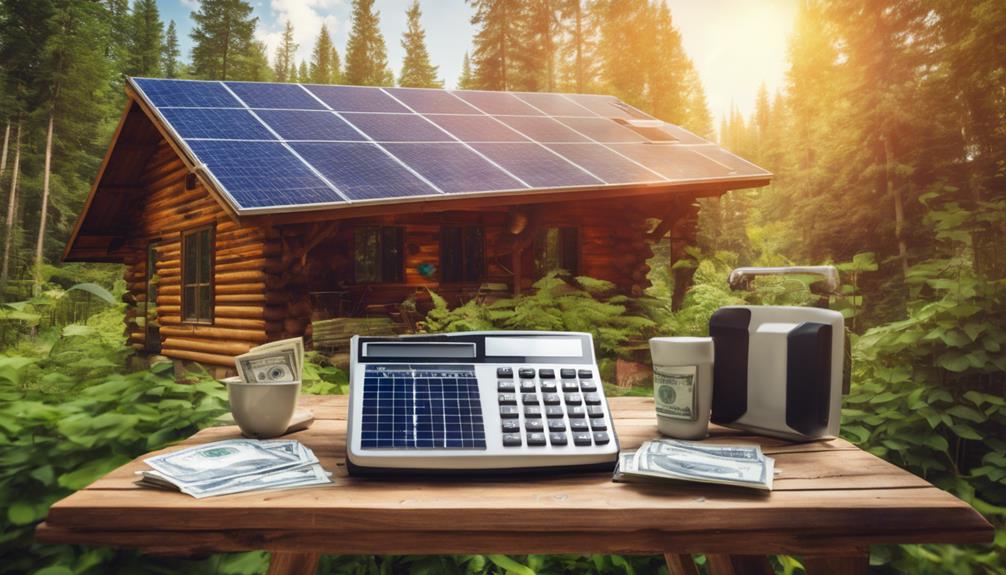
In recent years, the adoption of renewable energy sources has surged, and commercial solar panels have emerged as a leading solution for businesses looking to reduce their carbon footprint and energy costs. This comprehensive guide will delve into everything you need to know about commercial solar panels, including their benefits, installation processes, cost considerations, and how they can contribute to sustainable business practices.
Understanding Commercial Solar Panels and Their Importance
Commercial solar panels are photovoltaic (PV) systems designed specifically for businesses, ranging from small enterprises to large corporations. These panels convert sunlight into electricity, providing a sustainable energy source that can power operations, reduce utility expenses, and enhance energy independence. The growing emphasis on sustainability, coupled with government incentives and technological advancements, makes commercial solar panels an intelligent investment for any business looking to improve its operational efficiency and environmental impact.
The Benefits of Installing Commercial Solar Panels
The advantages of commercial solar panels extend beyond just energy savings. By harnessing solar energy, businesses can significantly reduce their operating costs, as solar electricity can offset a substantial portion of their monthly utility bills. Additionally, companies that invest in commercial solar panels can take advantage of various tax incentives, rebates, and grants designed to encourage renewable energy adoption. Furthermore, using solar energy can enhance a company’s reputation, demonstrating a commitment to sustainability and attracting environmentally-conscious customers.
How Commercial Solar Panels Work
Understanding how commercial solar panels work is crucial for making an informed decision about their installation. Photovoltaic panels consist of multiple solar cells that capture sunlight and convert it into direct current (DC) electricity. An inverter then converts this DC electricity into alternating current (AC), which can be used to power business operations or fed back into the grid. If a business produces more electricity than it consumes, it can often receive credits or payments from their utility provider, further maximizing the return on investment.
Choosing the Right Commercial Solar Panel System
When selecting commercial solar panels, businesses must consider various factors to find the best solution for their needs. Key considerations include the type of panels (monocrystalline vs. polycrystalline), the size of the installation, local climate conditions, and available roof space. Additionally, businesses should evaluate their energy consumption patterns to determine the optimal system size to meet their energy needs while maximizing savings. Consulting with a trusted solar provider can help ensure the chosen system aligns with the company’s goals and budget.
The Installation Process of Commercial Solar Panels
The installation of commercial solar panels involves several key steps, starting with an initial assessment of the site and energy needs. After determining the appropriate system size and type, the solar provider will design a customized installation plan. Following the design phase, the installation team will proceed with mounting the panels, setting up the inverter, and connecting the system to the electrical grid. The entire process can take anywhere from a few weeks to a few months, depending on the complexity of the project and local permitting requirements.
Cost Considerations for Commercial Solar Panels
Investing in commercial solar panels can require a significant upfront investment, but it’s essential to consider the long-term savings and financial incentives. The cost of a commercial solar panel system varies based on factors such as system size, type of panels, installation complexity, and geographic location. However, businesses can often finance their solar investments through loans, leases, or power purchase agreements (PPAs) to minimize initial costs. Moreover, federal tax credits and state-level incentives can further reduce the overall financial burden, making solar energy an attractive option for many businesses.
Maintenance of Commercial Solar Panels
One of the appealing aspects of commercial solar panels is their relatively low maintenance requirements. After installation, they typically require minimal upkeep, with routine inspections and cleaning being the most crucial tasks to ensure optimal performance. Businesses should monitor their systems regularly to identify any potential issues, such as shading from nearby trees or debris accumulation, that can hinder efficiency. Most solar panel manufacturers offer warranties that cover performance and equipment, providing additional peace of mind for business owners.
The Future of Commercial Solar Panels and Sustainability
As the world shifts toward more sustainable energy solutions, the future of commercial solar panels looks promising. Innovations in solar technology, battery storage, and smart grid integration are paving the way for even greater efficiency and accessibility. As businesses increasingly recognize the importance of sustainability, those that invest in commercial solar panels will not only benefit financially but also contribute to a cleaner and greener future. With solar energy playing a pivotal role in combating climate change, adopting solar technology is becoming not just an option, but a necessity for responsible business practices.
In conclusion, commercial solar panels represent a smart, sustainable investment for businesses looking to cut costs, reduce their environmental impact, and enhance their brand reputation. By understanding the benefits, installation process, and financial considerations associated with commercial solar panels, business owners can make informed decisions that position their companies for long-term success in an increasingly eco-conscious marketplace. Now is the time to harness the power of the sun and join the renewable energy revolution!





